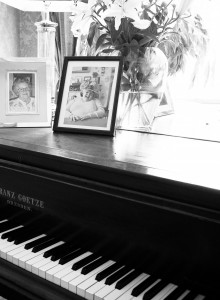Dementia affects a person’s memory, cognitive ability, perception and communication. It can cause a number of symptoms, which will often manifest differently in different people.…
Read More...
The most common cause of dementia in the UK today is Alzheimer’s Disease, effecting an estimated 850,000 people. Most people who develop Alzheimer’s do so after…
Read More...
There are many different types of dementia, and some people may suffer from a combination of types. Here are some of the most common types…
Read More...
In the early stages, each type of dementia will manifest with its own particular signs and symptoms. This is because in different types of dementia,…
Read More...
A person in the late stage of dementia will eventually become completely dependant on others, requiring specialist care. As the condition progresses, symptoms will be…
Read More...
Caring for a person with developing dementia requires specialist understanding. Particularly since the disorder manifests differently in each individual, and symptoms change over time. There…
Read More...

















